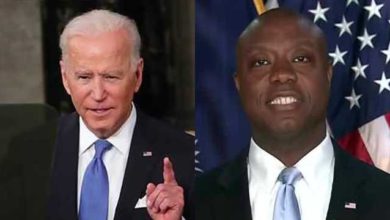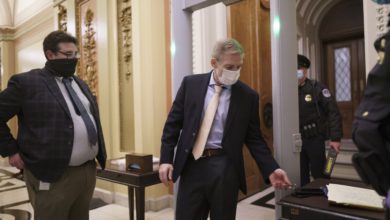The U.S. Department of Education is canceling its recognition of an accrediting agency that signed off on a South Dakota college that didn't seem to have students or professors.
The agency, the Accrediting Council for Independent Colleges and Schools, had approved Reagan National University in Sioux Falls. But a USA TODAY Network investigation last year found no evidence of students or faculty at the college.
ACICS "leaves me no reasonable option but to terminate its recognition, effective immediately," wrote Deputy Undersecretary for Education Jordan Matsudaira in a notice posted Wednesday to the department's website. The accreditor showed "significant and systemic noncompliance," he said.

The Education Department doesn't individually accredit colleges. Instead, it relies on third-party agencies known as accreditors to vet schools. Colleges that are approved can access taxpayer money in the form of grants and student loans.
The department's decision Wednesday aligns with President Joe Biden's plan to hold for-profit colleges under close scrutiny.
ACICS' loss of accreditation means the roughly 60 colleges the agency had approved will have 18 months to find a new accreditor if they want to keep accessing federal money. ACICS' members are mostly for-profit colleges and rely heavily on federal money to keep afloat.
ACICS' loss of accreditation means the roughly 60 colleges the agency had approved will have 18 months to find a new accreditor if they want to keep accessing federal money. ACICS' members are mostly for-profit colleges and rely heavily on federal money to keep afloat.
The accreditor on Wednesday evening indicated it plans to appeal the department's decision to Education Secretary Miguel Cardona.
"All that we ask is that a decision regarding our continued recognition be driven by the improvements we have made and our effectiveness as an accreditor today," wrote Michelle Edwards, president of ACICS, in a statement on the group's website. "Not by policy priorities and outside pressure from political activists."
The agency has a history of approving questionable colleges with devastating consequences. It accredited ITT Tech, Corinthian Colleges and Brightwood College, massive for-profit universities whose sudden closures in the past decade left thousands of students without degrees and undermined the value of the education of those who did graduate. Those closures led President Barack Obama’s Education Department to strip ACICS’ powers in 2016.
The schools the agency had approved scrambled to find new accreditors, said Michael Itzkowitz, a senior fellow at the center-left think tank Third Way. The best of those colleges were able to find a new agency, he said.
"Many of the ACICS schools that remain are those that applied to other accreditors, but were ultimately rejected," Itzkowitz said. "If history repeats itself, it's likely they'll be rejected again, as the agency – and presumably a lot of the schools it continues to oversee – have been shown to be out of compliance since the initial termination five years earlier."
After a federal court decision, President Donald Trump's administration and then-Education Secretary Betsy DeVos reinstated the accrediting agency in 2018. By that point, it had lost dozens of colleges and their membership fees. It needed new members, and fast.
The decision in 2017 to approve Reagan National University as a viable college called into question ACICS’ ability to hold colleges accountable for the education they’re supposed to provide.
A February 2020 investigation by USA TODAY and the Argus Leader in Sioux Falls found no evidence Reagan National was teaching students. Several important links on the college's website were broken. Its administrators seldom answered phone calls, or they hung up immediately when a reporter identified himself. Its offices were empty, both when journalists visited and when an investigator for ACICS dropped by the campus for a spot check.
"Accreditors are entrusted with assuring institutional quality and acting as gatekeepers to federal student aid. This oversight helps ensure that institutions deliver on the promises made to students and safeguard federal resources," the Department of Education said in a statement. Department staff, the statement said, found ACICS failed to monitor its colleges and had "inadequate administrative capability."
Source link









